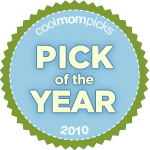Can you tell I'm about to head out on vacation? That's usually when my cheesy blog post titles come around - I'm a little bit frazzled and a little bit giddy! So please ignore my nerdiness and enjoy some useful tips from Ideal Bite about what the labels on your egg cartons actually mean:
If the label says:
- Animal Welfare Approved, American Humane Certified, or Certified Humane - eggs came from farms independently certified by animal welfare nonprofits (note: the latter two do allow beak-cutting).
- Cage Free - not regulated, but it usually means producers keep hens uncaged in barns or warehouses (though often there's no outdoor access).
- Free Range - typically means the hens are uncaged and have outdoor access - but nobody checks on the amount or duration.
- Natural - the USDA says Natural food products can't contain "any artificial or synthetic ingredients, and it must be minimally processed" - vague enough that it could apply to just about any egg.
- Organic - third-party-audited label that means the hens are uncaged and have access to the outdoors, and get a diet of organic, vegetarian feed without any antibiotics (beak-cutting and forced molting are permitted).
- Pasture Raised - unregulated, but typically birds raised this way have the chance to go outdoors and eat an organic diet.
- United Egg Producers Certified - producers can restrict hens to small cages and beak-cutting is allowed (but forced molting isn't).
- No Label - the hens were probably raised in a factory farm; if a company can make a claim, it usually will.
Before I head out for the weekend, I'm mixing together some stuff for Mexican Hot Cocoa to bring with me to Iceland. We're renting an apartment there for a few days, so I'm going to be drinking this stuff like mad trying to stay warm! Here's to hoping they have Cool Whip there!














3 comments:
So how to you know if an egg is cruelty free? Meaning: Free-range, Organic and Beak-cutting free? It's all so confusing to me even with this great primer. Maybe it's just me! :)
I totally agree - SO confusing. That's the kind of egg i want, too. I think the best way is to buy local and get to know the farmers. Maybe I'll just get my own chickens and that way i'll know what's going on. :)
I tried to dig around for more info but no such luck. You can check out the comments on the original Ideal Bite post, but they basically say what you said, Lindsay - that the best way to know they're humane is to raise your own chickens (which of course is not feasible for everyone but is something to consider!) or to buy from a local farmer you know and trust. I searched for a few other sources but it's hard to find an unbiased site you can trust. I mean, any site that's plastered with disgusting pictures of dead chickens probably contains a lot of truth, but clearly has an agenda. And then any site sponsored by the big farming corporations clearly has a different agenda. I trust Ideal Bite as a good source of info, but this particular tip doesn't seem to be fully rounded out. I don't want to risk posting sensational, unfounded info here from some of the sites I found, so I guess for now this is the best we can do!
Post a Comment